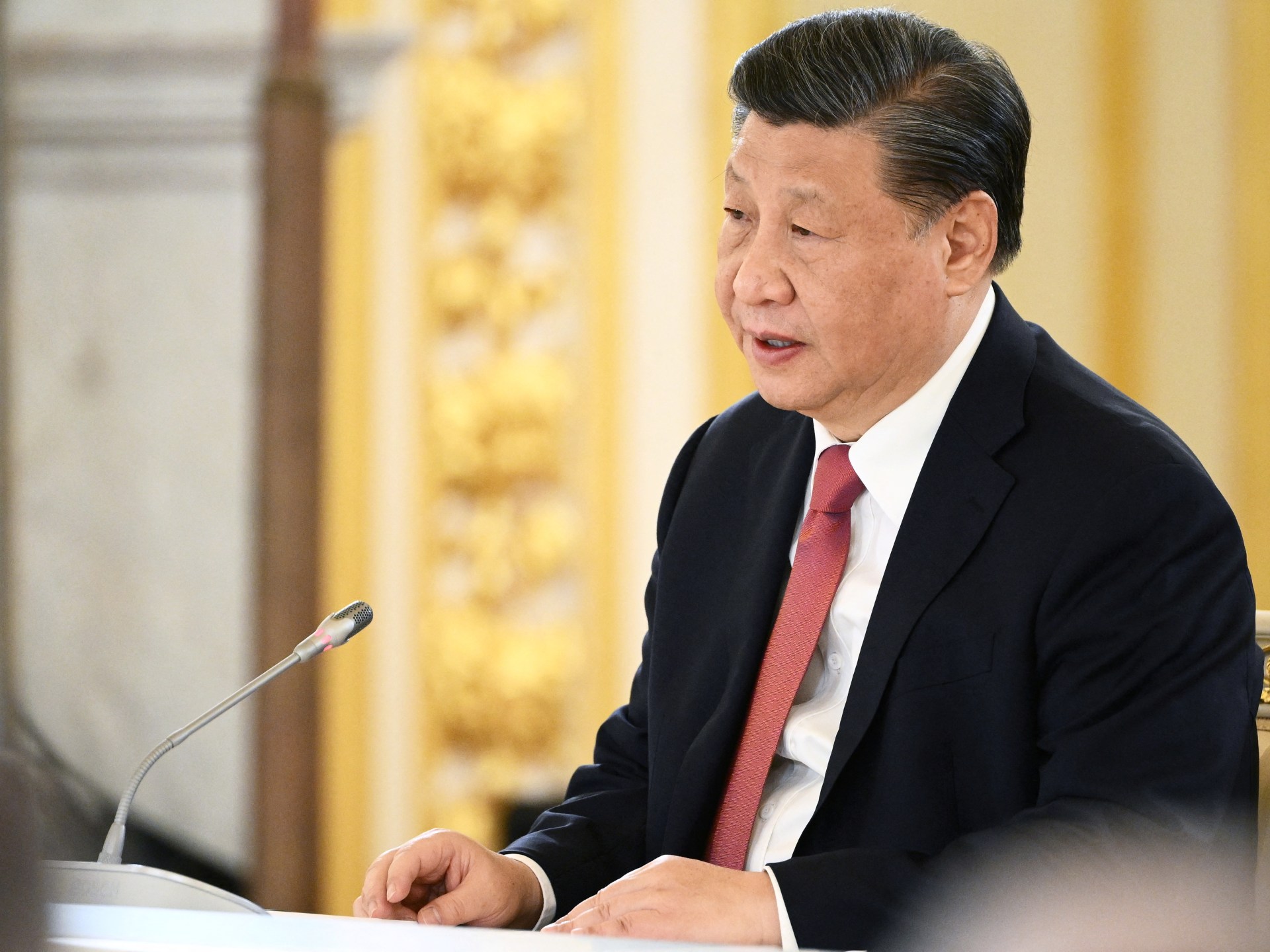China’s Xi to meet foreign business leaders amid jitters over economy | Business and Economy News
Taipei, Taiwan – Chinese President Xi Jinping is set to meet with American business leaders in Beijing, media outlets have reported, as he tries to woo foreign investment back to China after a challenging few years for the world’s second-largest economy.
The meeting on Wednesday is expected to include Apple CEO Tim Cook, Blackstone head Stephen A Schwarzman and HSBC’s Noel Quinn, the Wall Street Journal reported, citing people familiar with the roster.
Many of the world’s top executives are already in Beijing this week for the China Development Forum which took place on Sunday and Monday.
The forum’s guest list includes World Bank President Ajay Banga, International Monetary Fund Managing Director Kristalina Georgieva, and representatives of more than 100 multinational firms.
While business leaders have been able to meet with many senior Chinese leaders in recent days, the invitation to meet Xi signals a concerted effort by Beijing to address negative perceptions about the current business environment.
“It’s possible that investors and executives will air some grievances at the meeting, and it’s possible that lobbying might make some impact, but I don’t think that’s what this meeting is really about,” Chris Beddor, deputy China research director at Gavekal Dragonomics, told Al Jazeera.
“This is primarily about Xi sending a message. The message is that the Chinese government is attuned to the concerns of global companies and investors, and still wants their presence in the country, at a time when global businesses are very wary of China.”
Last year, foreign direct investment in China fell 8 percent as companies scaled back operations and sought to “de-risk” their businesses amid continuing geopolitical tensions and a tougher regulatory environment.
Tightened espionage and state secrets laws have also made some firms question whether they are truly welcome, while the COVID-19 pandemic drew attention to their overreliance on Chinese supply chains.
Still, some foreign companies have stressed their eagerness to double down on their investment.
Cook on Sunday told Chinese media that he hoped to increase Apple’s investment in China, where the company’s flagship iPhone has lost ground to local Huawei models like the Mate 60 Pro Plus.
“I think China is really opening up, and I’m so happy to be here,” Cook was quoted as saying on the sidelines of the China Development Forum.
Others, including IMF Director Georgieva, are more jittery over China’s future.
During a speech at the China Development Forum, Georgieva told policymakers that more pro-market reforms are needed to help China’s economy rebound from the pandemic.
Despite growing 5 percent last year, China’s economy is struggling with deflation and a protracted real estate crisis.
“China is poised to face a fork in the road – rely on the policies that have worked in the past, or update its policies for a new era of high-quality growth,” Georgieva said, suggesting that reforms could add $3.5 trillion to the economy over the next 15 years.
Shifting to consumption-focused growth, however, may be easier said than done in an economy marked by weakened domestic demand and sagging business confidence.
Chinese officials have long relied on mega infrastructure projects to boost gross domestic product, necessitating a mind shift among policymakers to move towards consumption-led growth.
Despite these concerns, China has set this year’s GDP target at 5 percent and pledged to continue its support for strategic sectors, among other goals outlined to attendees of the China Development Forum.
This year’s China Development Forum got off to a less rocky start than last year’s event, which was overshadowed by the aftermath of Beijing’s tough pandemic curbs and controversy over a Chinese spy balloon in US airspace.
“US-China tensions are a bit more stable this year, so the political pressure on American attendees has lessened somewhat,” Beddor said.
“There simply weren’t that many foreign visitors in China in March 2023. So it’s not surprising that attendance is up this year, because foreign travel of all sorts to the country is a bit more normal compared to last year,” he said.
Check out our Latest News and Follow us at Facebook
Original Source







